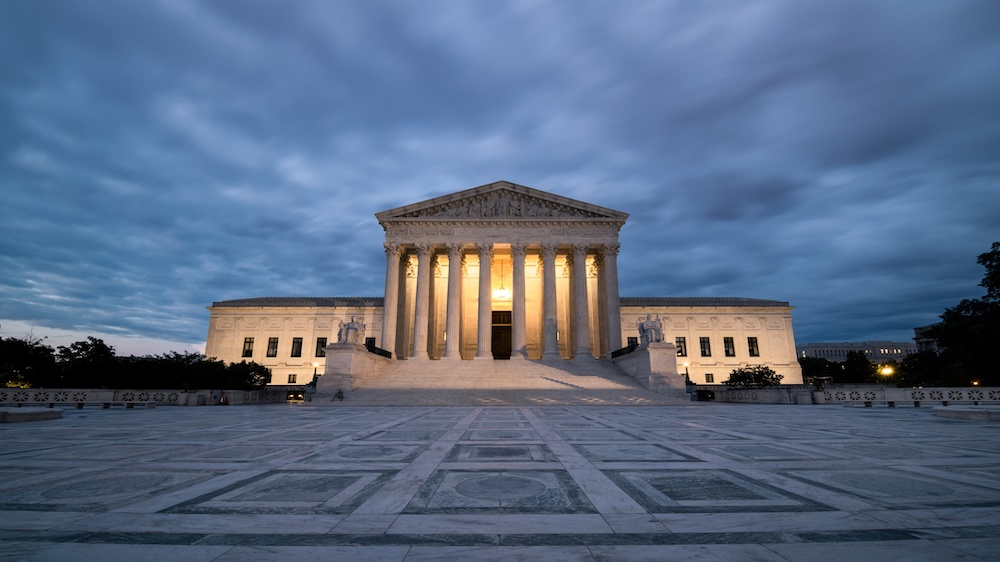If you’re interested in sharing your opinion on any cultural, political or personal topic, create an account here and check out our how-to post to learn more.
Opinions are the writer’s own and not those of Blavity's.
____
The Supreme Court recently ruled that judges need not determine that juvenile offenders are beyond hope of rehabilitation before sentencing them to life in prison without the possibility of parole. The ruling was 6-3 with Justice Sotomayor drawing a dissent.
This is especially terrible news for Black and Latino children, who are both disproportionately targeted by police and more likely to serve longer, harsher sentences. This ruling is also a huge injustice to the people who care the most about their children’s life outcomes: the mothers who have to say goodbye to their child once they are hauled off to serve a life sentence, their whole lives taken from them with no chance at restoration or redemption.
No mother should see their child sentenced to life in prison, and we owe it to the mothers, other-mothers and grandmothers in our community to limit life terms for young people. It is time for a Black woman Supreme Court nominee to ensure mothers do not have to witness their child become incarcerated for the rest of their lives.
While the Supreme Court ruling states that judges have no responsibility to determine a young person’s potential for rehabilitation before sentencing, no child should be viewed by our legal system as beyond hope. Justice Kavanaugh stated during the ruling that in the case of Jones v. Mississippi, the sentencing judge exercised discretion, rather than automatically imposing a sentence of life without parole.
But the truth is, Black and brown youth receive harsher sentences across the board. According to the US Department of Justice, Black youth were more than five times as likely to be detained or committed compared to white youth, as of October 2015. Additionally, one out of every three Black boys born today can expect to be sentenced to prison, compared to one out of six Latino boys and one out of 17 white boys.
Our criminal legal system has a violent racial bias against youth of color that puts them at a disadvantage and makes them vulnerable to over-sentencing and over-incarceration. This is one more reason why nominating a Black woman to the Supreme Court, whose values inform her understanding of the deep humanity of our children and the effect mass incarceration has on their lives, is crucial to creating a path towards banning life terms for youth and, ultimately, the end of decriminalizing Blackness.
There are several examples of court cases involving youth where a Black woman’s voice on the Supreme Court would have been the difference between a child or teenager being given another chance to find redemption and spending their youth and adulthood in prison. Justice Kavanaugh stated that the re-sentencing of the minor to life in prison “did not violate the Eighth Amendment, which bans cruel and unusual punishments, because the punishment imposed by the trial judge had been discretionary rather than mandatory.”
It is clear that Kavanaugh is a loud voice that will not value the lives of our youth and sees no problem with ensuring that lifetime incarceration is a proper way of handling juvenile crimes if the judge sees fit. A Black woman on the Supreme Court, who approaches juvenile justice in a way that takes into account what it takes for a young person to re-enter society and account for their crimes, would make sure that a harsh re-sentencing like we saw with Jones v. Mississippi would never happen again.
Sentencing youth to life terms also sends the message that our children are damaged beyond repair and continues the cycles of the school-to-prison pipeline and mass incarceration — two cycles that work against our youth in tandem and destroy our families. Now is the time, more than ever, for President Biden to deliver on our demand for a Black woman Supreme Court nominee who values the lives of our children and believes in keeping families together. We need a Black woman on the Supreme Court who understands the responsibility the courts have to create fair sentencing that matches the crime committed. We also need a Black woman nominee who affirms the humanity of our youth, knowing that no child is beyond repair.
Black women have proven time and time again that they have the political imagination and innovation to be strong leaders in Congress and the White House — and it is time a Black woman had the opportunity to bring that innovation to the highest court in the land.
____
Sabriya I. Williams is a co-founder of #SheWillRise, an organization working toward greater equality in America by ensuring a Black woman justice on the US Supreme Court for the first time ever.
